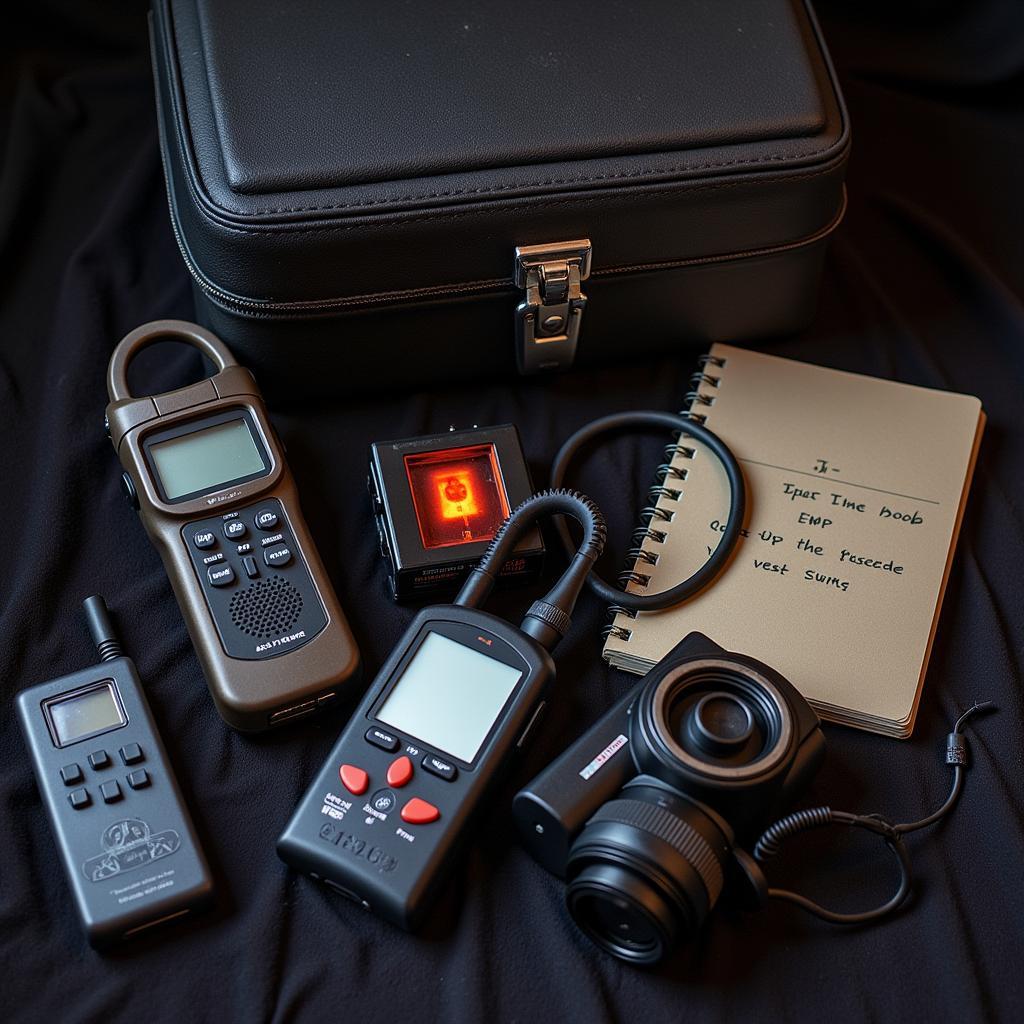Rationale research, a cornerstone of scientific exploration, plays a crucial role in unraveling the mysteries of the unknown. By providing a logical framework and clear justification for research endeavors, it empowers investigators to pursue knowledge with purpose and precision. In the realm of paranormal research, where skepticism often intertwines with curiosity, rationale research serves as a guiding light, illuminating the path toward credible investigation.
The Foundation of Rationale Research: Defining the “Why”
At its core, rationale research aims to answer a fundamental question: Why? Why is this research important? What gaps in knowledge does it address? How will its findings contribute to our understanding of the phenomenon in question? These questions form the bedrock of a robust research rationale, providing a clear roadmap for investigation.
Imagine, for instance, a team of paranormal researchers drawn to an ancient, reportedly haunted mansion. Their curiosity is piqued by local legends and eyewitness accounts of spectral figures and unexplained occurrences. While intriguing, these anecdotes alone do not constitute a solid rationale for a full-blown investigation.
Instead, the team must delve deeper, scrutinizing historical records, architectural blueprints, and any documented paranormal events associated with the mansion. They might research the history of the property, seeking patterns or events that could potentially explain the alleged phenomena. By meticulously gathering and analyzing this preliminary information, the researchers can construct a compelling rationale, outlining the specific questions their investigation seeks to answer.
 Rationale research for a haunted mansion
Rationale research for a haunted mansion
From Hypothesis to Methodology: Constructing a Coherent Research Design
Once a strong rationale is established, the next step involves formulating testable hypotheses. These are essentially educated guesses, grounded in the research rationale, that predict potential outcomes or relationships. For our haunted mansion investigation, a hypothesis might be: “If the mansion is genuinely haunted by the spirit of its former owner, then evidence of his presence will be found in areas where he was known to spend significant time.”
The research methodology, encompassing the tools, techniques, and procedures employed during the investigation, must align with the established hypotheses. This ensures that the data collected is relevant, reliable, and capable of supporting or refuting the initial predictions. For instance, the research team might utilize:
- EVP recordings: To capture any disembodied voices or sounds.
- EMF meters: To detect fluctuations in electromagnetic fields, often associated with paranormal activity.
- Thermal imaging cameras: To identify cold spots or temperature anomalies.
- Historical research: To corroborate witness accounts and establish a timeline of events.
 Tools for a paranormal investigation
Tools for a paranormal investigation
By employing a multifaceted approach, researchers can gather a comprehensive dataset, enhancing the credibility and objectivity of their findings.
Ethical Considerations: Navigating the Human Element in Paranormal Research
While the pursuit of knowledge is a noble endeavor, it’s imperative to prioritize ethical considerations, especially when dealing with potentially sensitive topics like the paranormal. Informed consent, privacy, and the potential psychological impact on both researchers and witnesses must be carefully addressed.
For example, researchers should obtain informed consent from all individuals involved in the investigation, clearly explaining the purpose, procedures, and potential risks. Confidentiality agreements might be necessary to protect the identities and personal information of witnesses. Additionally, researchers should be mindful of the potential psychological impact of their work, both on themselves and those they interact with, and have resources available for support if needed.
Rationale Research: A Gateway to Understanding
Rationale research serves as a vital tool for navigating the complexities of paranormal investigation. By establishing a clear “why” behind every research endeavor, formulating testable hypotheses, and employing a rigorous methodology, investigators can move beyond mere speculation and contribute to a more nuanced understanding of the unknown.
Remember, in the world of paranormal research, a healthy dose of skepticism, coupled with a commitment to ethical and rationale-driven investigation, is essential for separating fact from fiction and illuminating the path toward discovery.
FAQs about Rationale Research in Paranormal Investigations
1. Is rationale research only necessary for large-scale paranormal investigations?
No, rationale research is crucial for investigations of all sizes. Whether you’re exploring a local legend or conducting a multi-site study, having a clear rationale ensures your efforts are focused and meaningful.
2. Can I change my research hypotheses during an investigation?
While it’s best to establish your hypotheses upfront, it’s acceptable to adjust them if your findings warrant a shift in focus. Be sure to document any changes and explain the reasoning behind them.
3. How can I ensure the ethical treatment of witnesses in my research?
Always obtain informed consent, respect privacy, and be mindful of the potential impact of your research on those involved. Providing resources for support and maintaining confidentiality are key.
Need Help With Your Paranormal Research?
If you’re grappling with a paranormal enigma or seeking guidance on conducting ethical and rationale-driven research, our team at Paranormal Research is here to assist you.
Contact us today:
- Phone: 0904826292
- Email: research@gmail.com
- Address: No. 31, Alley 142/7, P. Phú Viên, Bồ Đề, Long Biên, Hà Nội, Việt Nam.
Our dedicated team is available 24/7 to provide support and answer your questions.
Explore Further:
Don’t let the mysteries of the paranormal remain unsolved. Let us help you shed light on the unknown.